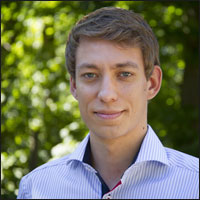Ward Ooms: 'We examined whether heterogeneity as a result of the orientation the researcher chooses in his or her research, as a result of gender, or because of disciplinary and cultural differences with their promoters (those who accompany and form the young academics during the first steps of the career), helps or hinders the career of academics.'
The result
Based on a sample of 248 academics from two leading European technical universities, models were combined to better understand the career development of scientists.
The results show that heterogeneity in the research orientation is useful. Academics who bridge the gap between the pursuit of fundamental understanding and socio-economic relevance of their research move on to academic career ladder.
The results of the study also confirmed the assumption that female academics face difficulties in finding a permanent position and, if they are able to obtain such a permanent position, in obtaining a professorship.
Differences between supervisor and doctoral candidate in a disciplinary and cultural background only appear to help in making the first steps in the career, while they in fact hinder further advancement in the function house of universities.
The relevance
A quarter of all PhD students in the Netherlands continue to work at the university after obtaining their PhD.
The insights gained offer suggestions to policymakers, university administrators, and academics. This is because the acquired research results can contribute to facilitating and creating career opportunities for promising academics and the right support for current staff members.
Ward Ooms: 'But also think of taking measures to correct gender inequality. And to the possible substantiation of strategic choices with regard to research orientation and promoters of PhD students.'

